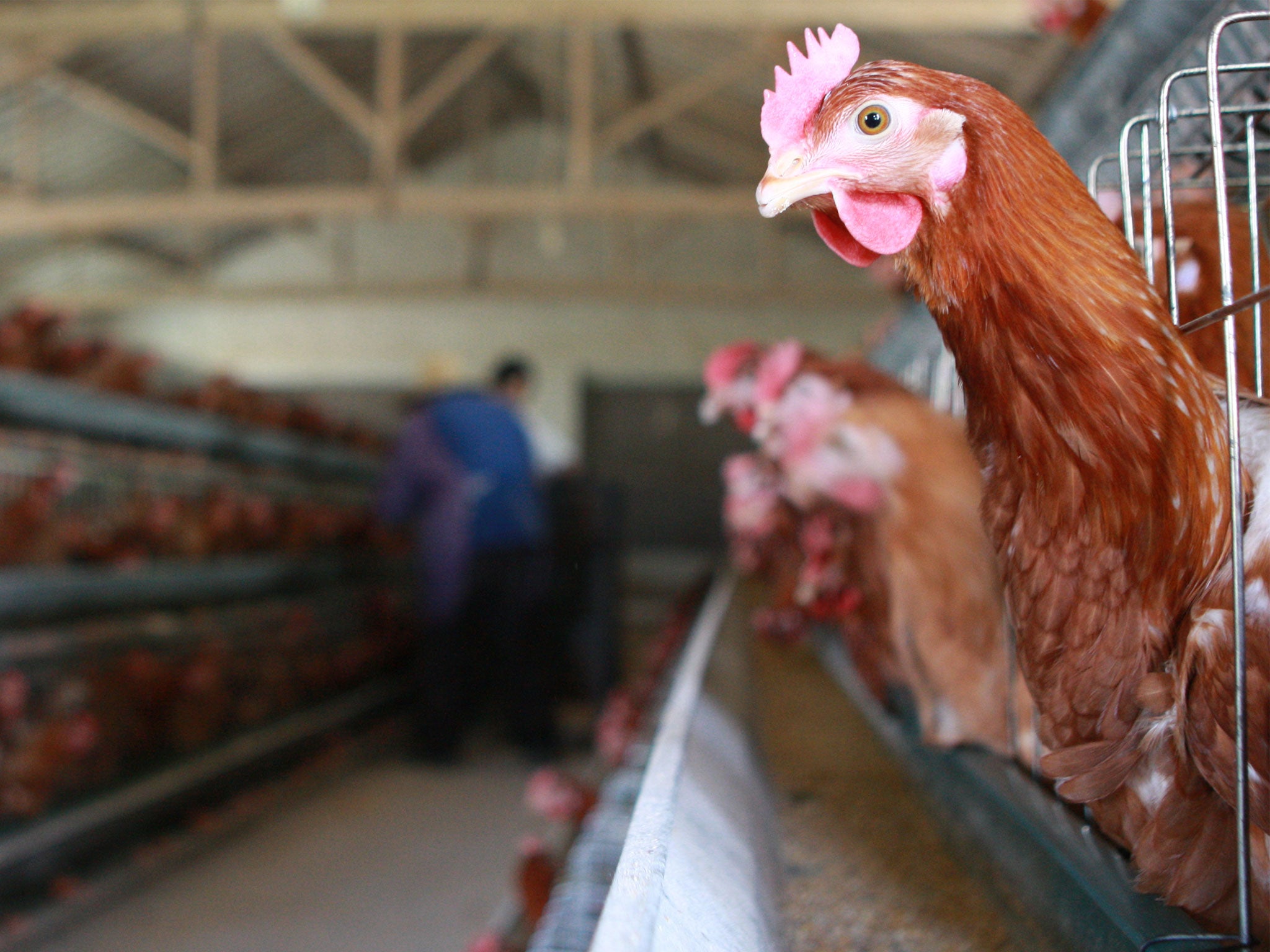Farmers using powerful antibiotic 'of last resort' on healthy chickens to boost weight, report finds
Thousands of tonnes of colistin shipped worldwide to be used without controls, investigation finds

Your support helps us to tell the story
From reproductive rights to climate change to Big Tech, The Independent is on the ground when the story is developing. Whether it's investigating the financials of Elon Musk's pro-Trump PAC or producing our latest documentary, 'The A Word', which shines a light on the American women fighting for reproductive rights, we know how important it is to parse out the facts from the messaging.
At such a critical moment in US history, we need reporters on the ground. Your donation allows us to keep sending journalists to speak to both sides of the story.
The Independent is trusted by Americans across the entire political spectrum. And unlike many other quality news outlets, we choose not to lock Americans out of our reporting and analysis with paywalls. We believe quality journalism should be available to everyone, paid for by those who can afford it.
Your support makes all the difference.A powerful antibiotic described as a drug of last resort is being used on an industrial scale by farmers around the world, often on healthy animals and in a practice that poses risks to human health.
Colistin is given to chickens and other farm animals to make them gain weight faster and as pre-emptive protection against disease.
But the antibiotic is also used as a last line of defence in humans whose infections are not responding to other drugs.
And public health experts have warned about a new colistin-resistant gene that could leave some infections untreatable.
A report by the Bureau of Investigative Journalism found 2,800 tonnes of the drug were shipped to developing countries including India, Vietnam, Russia, Mexico, Colombia and Bolivia for use on animals in 2016.
The bureau said the total was likely to be higher as the product could be delivered under a different name, and to countries which do not make their customs data public.
India, which is regarded as one of the worst offenders for antibiotic misuse, received hundreds of tonnes of colistin for routine use in animals, particularly chickens.
The south Asian nation is expected to see the highest growth in drug use in animals of any country over the next decade, with estimates suggesting as much as 4,800 tonnes of antibiotics will be used in feed by 2030 – an 80 per cent increase on current levels.
Research published in the journal Science showed two antibiotics – tetracyclines and fluoroquinolones, which can treat illnesses including cholera and malaria – were the most commonly used drugs in animal feed.
Overuse of antibiotics in animals and humans is contributing to the rising threat of antibiotic resistance, with some types of bacteria already having developed resistance to most or all of the available treatments.
Maryn McKenna, author of Plucked, which details antibiotic use in agriculture, said drug misuse on farms was “a threat to human health everywhere, whether or not we are eating the chicken produced on those farms”.
She told The Independent: “Pathogens cross borders with impunity, not only on meat but through the environment and in the bodies of people who have already acquired them.”
Ms McKenna added that farmers in Europe and North America had demonstrated that antibiotics were not needed for large-scale poultry farming, and noted that the Indian government had declined to regulate antibiotics that other countries have banned.
However, the problem is not just limited to chickens, or farms outside Europe.
Nearly half of all antibiotics used in the UK are given to animals, with many used in pig factory farming as poor conditions and high infection rates mean the medication is the only way to keep the animals alive.
Tracy Worcester, of Farms not Factories, said: “With the increase in animal factories, we are opening the door to antibiotic resistant diseases like salmonella, E.coli, campylobacter and the pig strain of MRSA that spread from the workers and neighbours, through the air and contaminated water.”
Roger Harrison, a senior lecturer in public health at the University of Manchester, said the issue of antibiotic resistance was also down to humans “taking far too many, for far too long and mainly because we haven’t even needed them”.
Prof Harrison, who also chairs Action on Antibiotic Drug Resistance, added: “We need to be concerned as tens of thousands of people die because of this, and plenty more will continue to do so until we get new antibiotics in the pipeline, improve sanitation and general infection control.”
The British Poultry Council has pledged to not use colistin, although the commitment does not cover all poultry producers since the BPC only accounts for 90 per cent of the UK poultry-meat industry.
Cóilín Nunan, of the Alliance to Save Our Antibiotics, argued that “last-resort” antibiotics like colistin should never be used in farming.
“The UK livestock industry only uses small amounts of colistin. This is mainly in the pig industry, but compared to many other countries, the quantities used of this particular antibiotic in the UK are very small,” she told The Independent.
Dr Awa Aidara-Kane, a scientist at the World Health Organisation’s Foodborne and Zoonotic Diseases Department, said there was an “urgent need for prudent use of antibiotics in both human medicine and in agriculture”.
She added: “Studies in several countries have shown that the use of antimicrobials for growth promotion is no longer considered effective or needed in food animal production.
“Improved hygiene, biosecurity and use of vaccines can be effective alternatives to ensure animal health without routine use of antibiotics for disease prevention.”
Join our commenting forum
Join thought-provoking conversations, follow other Independent readers and see their replies
Comments